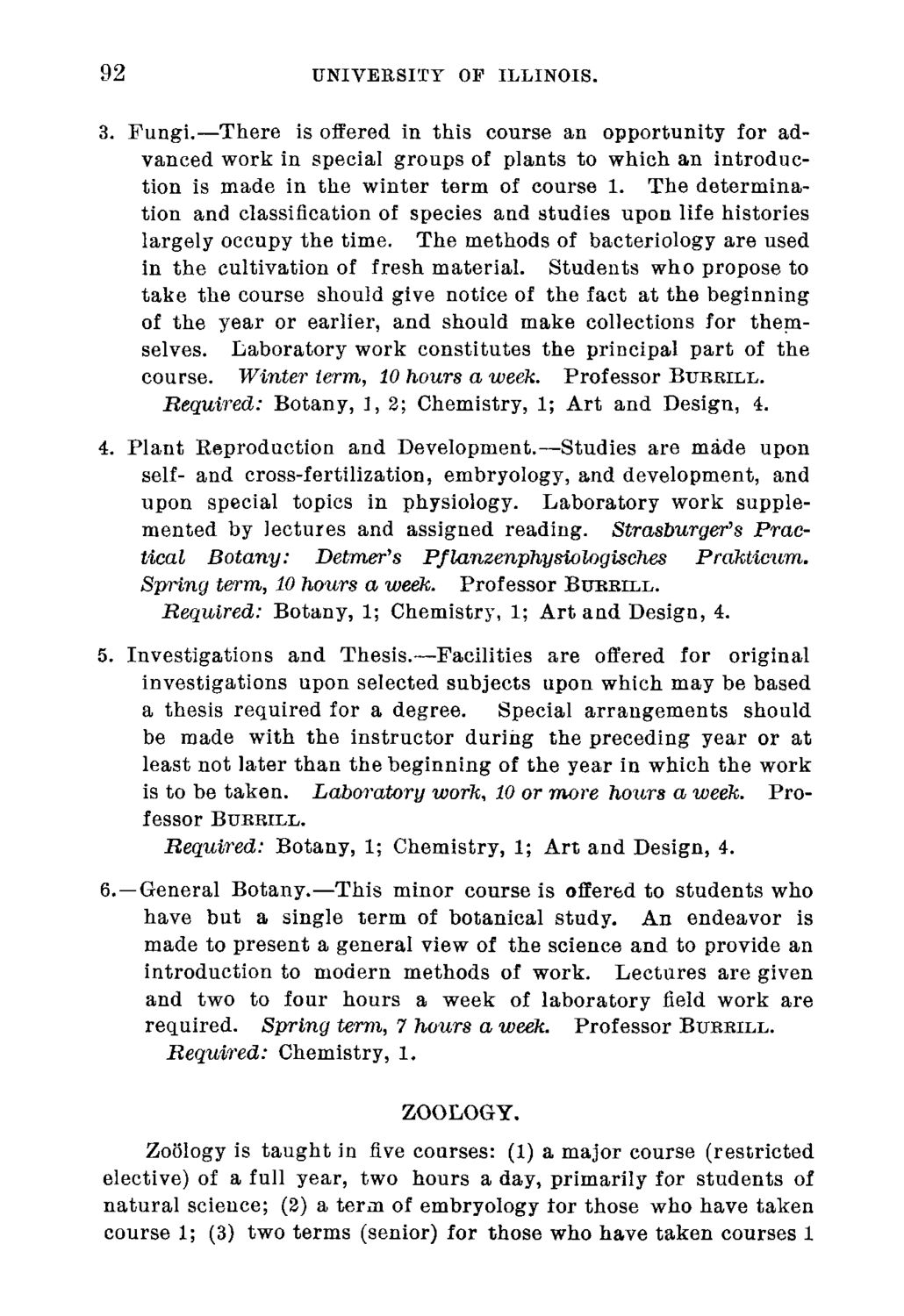| |
| |
Caption: Course Catalog - 1891-1892
This is a reduced-resolution page image for fast online browsing.

EXTRACTED TEXT FROM PAGE:
92 UNIVERSITY OP ILLINOIS. 3. Fungi.—There is offered in this course an opportunity for advanced work in special groups of plants to which an introduction is made in the winter term of course 1. The determination and classification of species and studies upon life histories largely occupy the time. The methods of bacteriology are used in the cultivation of fresh material. Students who propose to take the course should give notice of the fact at the beginning of the year or earlier, and should make collections for themselves. Laboratory work constitutes the principal part of the course. Winter term, 10 hours a week. Professor BUBRIIX. Required: Botany, I, 2; Chemistry, 1; Art and Design, 4. 4. Plant Reproduction and Development.—Studies are made upon self- and cross-fertilization, embryology, and development, and upon special topics in physiology. Laboratory work supplemented by lectures and assigned reading. Strasburger's Practical Botany: Detmer's Pflamenphysiologlsehes Prakticurn. Spring term, 10 hours a week,. Professor BUBBILL. Required: Botany, 1; Chemistry, 1; Art and Design, 4. 5. Investigations and Thesis.—Facilities are offered for original investigations upon selected subjects upon which may be based a thesis required for a degree. Special arrangements should be made with the instructor during the preceding year or at least not later than the beginning of the year in which the work is to be taken. Laboratory work, 10 or more hours a week. Professor BUKBILL. Required: Botany, 1; Chemistry, 1; Art and Design, 4. 6. —General Botany.—This minor course is offered to students who have but a single term of botanical study. An endeavor is made to present a general view of the science and to provide an introduction to modern methods of work. Lectures are given and two to four hours a week of laboratory field work are required. Spring term, 7 hours a week. Professor BURRILL. Required: Chemistry, 1. ZOOLOGY. Zoology is taught in five courses: (1) a major course (restricted elective) of a full year, two hours a day, primarily for students of natural science; (2) a term of embryology tor those who have taken course 1; (3) two terms (senior) for those who have taken courses 1
| |